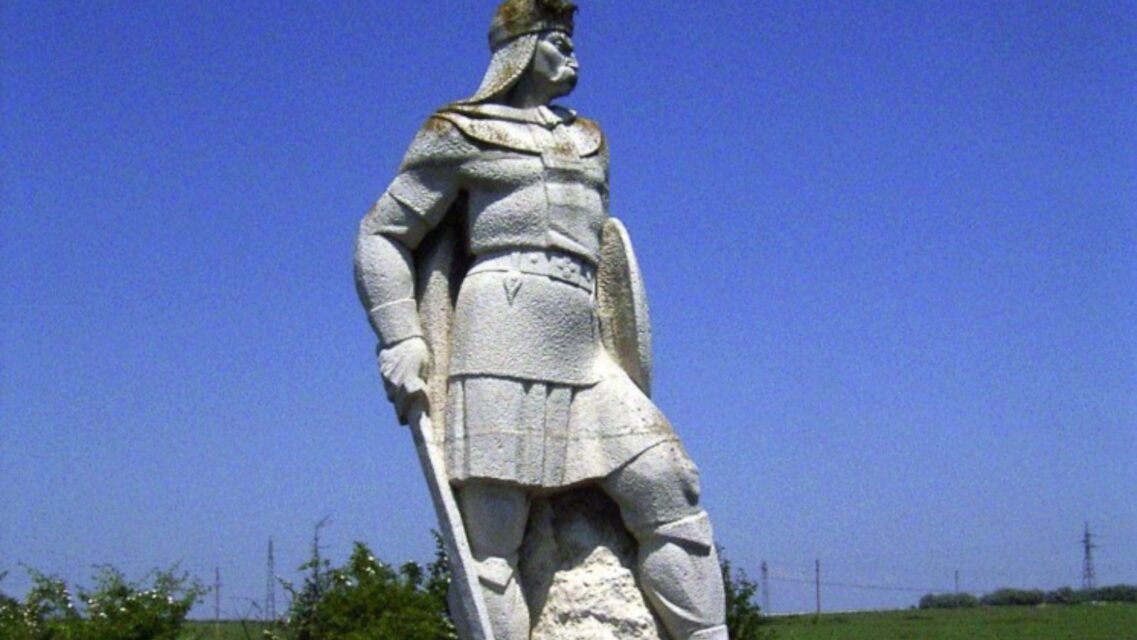In my upcoming book State Builders from The Steppe: A History of the First Bulgarian Empire, I obviously refer to this state as an empire and not a kingdom. I’ve had a few people ask me about that decision so I wanted to delve into it here: what an empire is, why the first Bulgarian state fits that definition, and why the question itself is so complex.
First, let’s look at what an empire is. From Merriam Webster, an empire is “a major political unit having a territory of great extent or a number of territories or peoples under a single sovereign authority, especially one having an emperor as chief of state.”
So how and why does the first Bulgarian state fall within this definition? I think we can fairly argue that this state had a number of peoples under its sovereign authority. At various times it ruled over vast numbers of Slavs, Vlachs, Serbs, Greeks, Armenians, Croats, Avars, and others. For entire political units, we can look specifically to Serbia as a singular political unit that was, at various times, entirely under the control of this state.
Of course this describes many states throughout history that haven’t been considered empires. The second factor that I think takes the first Bulgarian state over the line is that its leaders obtained the title of emperor. First, in 704, Khan Tervel was given the Byzantine title of Caesar in exchange for aiding Byzantine Emperor Justinian II. At the time, this was a title largely given to the heir to the throne, who would then later be given the title Augustus and made co-emperor. So while Caesar has at times meant simply “emperor” and is the origin of terms like tsar and kaiser, it did not strictly mean that at the time the title was given to Tervel.
Later, however, Tsar Simeon would obtain Byzantine recognition of his title of Emperor equal to the Emperor in Constantinople (though without the presumed universalism that the Byzantines connected with it) and refer to himself as “Emperor of the Bulgars and Romans” likely referring to the Greeks living in his territory. At this point you indeed have a ruler with the recognized title of emperor ruling over an expansive state containing many diverse peoples and territories.
Of course there was some controversy over this title over time, but the Byzantines did later recognize Simeon as simply emperor of the Bulgarians. This was also accepted by the Pope. There was also later controversy over the title during the second Bulgarian state, but that’s a discussion for another day.
Since the title of Tsar was revived in Bulgaria during the 20th century it has been translated as king and not emperor. This makes sense as this modern Bulgarian state no longer ruled over any major foreign territories, countries, or peoples (quite the opposite in fact). Thus when we look at the title of Tsar, it can mean either emperor or king, as it meant both at the same time depending on whether you were looking at Russia or Bulgaria.
To be clear, I don’t think it’s illegitimate to refer to the first Bulgarian State as merely a kingdom. English sources are quite mixed, with many using kingdom and many others using empire. But I felt using the term empire was both justified by the history and would help emphasize the size, scale, and contemporary importance of this state.
The First Bulgarian Empire was not merely one of many minor European kingdoms, but a major player on the continent which shaped centuries of European history. Obtaining those Byzantine imperial titles was also immensely important for the state and was a major goal for much of its existence. Referring to it as the First Bulgarian Empire recognizes the success of that endeavor and highlights one of its key successes: creating a lasting identity, in both being Bulgarian and being ruler of the Bulgarians, that remains to this day.

